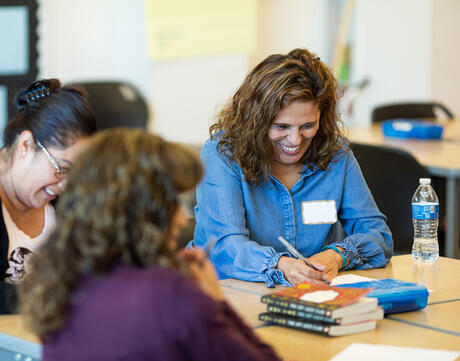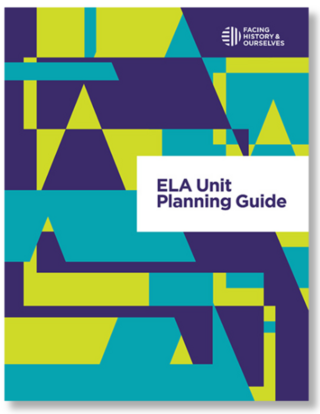
ELA Unit Planning Guide
At a Glance
Language
English — USSubject
- English & Language Arts
Grade
6–12- Culture & Identity
About This Guide
The ELA Unit Planning Guide coaches teachers through the process of applying Facing History’s approach to their unit design process. The guide includes seven sections of interactive learning content, plus classroom-ready resources such as essential questions, journal prompts, and customizable student activities to help teachers build daily lessons within the unit.
In full, the guide supports the creation of literature units that center students’ identities and experiences as young adults in the world today.
Download the guide, which has everything you need to get started with your unit planning process. You can also use this page to orient you to what you’ll find in the guide.

ELA Unit Planning Guide
The Unit Planning Guide includes the following sections:
Before You Plan Your Unit
Planning the Unit Structure
Planning the Daily Lessons
Collection-Specific Planning Resources
Here and within the Unit Planning Guide, we offer resources aligned to Facing History’s two ELA collections, Coming of Age in A Complex World and Borders & Belonging.

